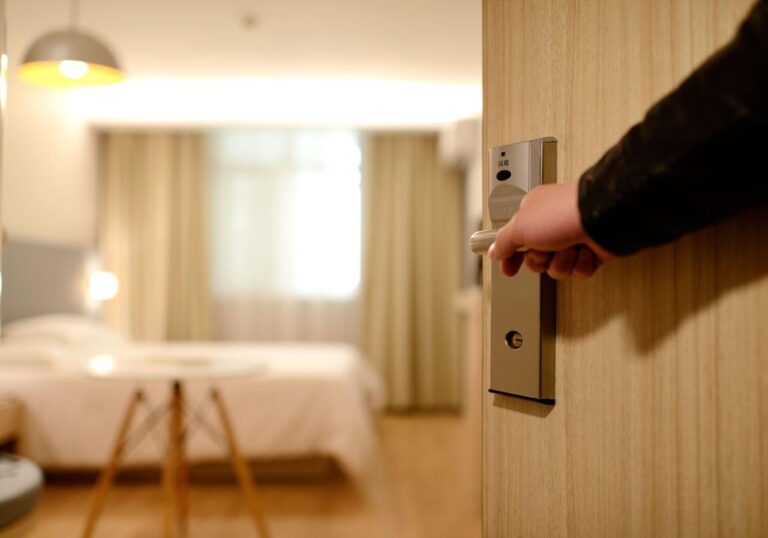Introduction
Home renovations can greatly enhance the functionality, appearance, and value of your property. However, without careful budgeting, expenses can quickly escalate, causing financial strain and potentially leaving projects incomplete. For homeowners in Port Macquarie, managing a renovation budget effectively is essential. This article will walk you through the key steps to develop a realistic and thorough budget for your home renovation project. We also offer expert home renovation builder services to assist with your needs.
1. Assess Your Financial Situation
Before starting any renovation project, it’s important to have a clear understanding of your financial situation. Assessing your finances will help you determine how much you can afford to spend and avoid overextending yourself.
- Evaluate Savings and Income: Review your savings, monthly income, and expenses to determine how much you can allocate to the renovation. Consider any upcoming financial obligations that may impact your budget.
- Consider Financing Options: If your savings are insufficient, explore financing options such as home equity loans, personal loans, or lines of credit. Ensure you understand the terms and interest rates of any loans you consider.
2. Define Your Renovation Goals and Scope
Clearly defining your renovation goals and scope is essential for creating an accurate budget. Knowing what you want to achieve will help you prioritize spending and avoid unnecessary expenses.
- Identify Priorities: List the primary goals of the renovation, such as adding space, updating the kitchen, or improving energy efficiency. Prioritize these goals based on their importance and impact on your home.
- Determine Scope: Outline the specific tasks and areas that will be included in the renovation. This may involve structural changes, cosmetic updates, or both. Having a clear scope will prevent scope creep and keep your budget on track.
3. Research Costs and Gather Estimates
Understanding the costs associated with your renovation project is crucial for creating a realistic budget. Conduct thorough research and gather estimates from professionals to get an accurate picture of expenses.
- Cost of Materials: Research the cost of materials needed for your renovation, including flooring, fixtures, appliances, paint, and cabinetry. Consider different quality levels and brands to find options that fit your budget.
- Labor Costs: Obtain detailed quotes from contractors and tradespeople for labor costs. Ensure quotes include all aspects of the work, such as demolition, construction, electrical, plumbing, and finishing touches.
- Permits and Fees: Factor in the cost of permits and fees required for your renovation. Contact the local council in Port Macquarie to determine the necessary permits and their associated costs.
4. Create a Detailed Budget
With a clear understanding of your renovation goals, scope, and costs, you can create a detailed budget that outlines all expected expenses. A well-organized budget will help you track spending and make informed decisions throughout the project.
- Itemize Costs: Break down your budget into specific categories, such as materials, labor, permits, and contingencies. Itemize costs within each category to ensure all aspects are covered.
- Include Contingency: Allocate a contingency fund of 10-15% of the total budget to cover unexpected expenses. This will provide a financial cushion for any surprises that arise during the renovation.
- Track Spending: Use a spreadsheet or budgeting tool to track spending and compare it to your budget. Regularly update your budget to reflect actual costs and adjust as needed to stay on track.
5. Prioritize and Make Trade-Offs
Renovation projects often involve making trade-offs to stay within budget. Prioritizing your goals and being flexible with certain aspects can help you achieve a successful renovation without overspending.
- Focus on High-Impact Areas: Allocate more of your budget to areas that will have the most significant impact on your home’s functionality and value, such as kitchens and bathrooms.
- Consider Alternatives: Look for cost-effective alternatives to expensive materials or finishes. For example, opt for laminate countertops instead of granite or consider refurbished appliances instead of new ones.
- Postpone Non-Essential Upgrades: If certain upgrades or features are not essential, consider postponing them to a later date when your budget allows.
6. Monitor and Control Costs
Keeping a close eye on costs throughout the renovation process is essential for staying within budget. Implement strategies to monitor expenses and control spending effectively.
- Regular Check-Ins: Schedule regular check-ins with your contractor to review progress and costs. Address any issues or changes promptly to avoid delays and additional expenses.
- Avoid Scope Creep: Stick to the original scope of the project and avoid adding new tasks or features that were not part of the initial plan. Any changes should be carefully considered and budgeted for.
- DIY Where Possible: Consider taking on certain tasks yourself to save on labor costs. DIY projects such as painting, landscaping, or installing fixtures can reduce expenses without compromising quality.
7. Plan for Long-Term Savings
Incorporating energy-efficient and sustainable features into your renovation can lead to long-term savings on utility bills and maintenance costs. Investing in quality materials and solutions can provide financial benefits over time.
- Energy-Efficient Upgrades: Invest in energy-efficient windows, insulation, lighting, and appliances to reduce energy consumption and lower utility bills.
- Sustainable Materials: Choose durable and sustainable materials that require less maintenance and have a longer lifespan, reducing the need for future repairs or replacements.
- Smart Home Technology: Consider integrating smart home technology to improve energy management and convenience, potentially reducing operating costs.
8. Communicate Effectively with Contractors
Clear and consistent communication with your contractors is essential for avoiding misunderstandings and ensuring the project stays on budget.
- Detailed Contracts: Ensure all agreements with contractors are detailed and clearly outline the scope of work, costs, payment schedules, and timelines. Review contracts carefully before signing.
- Regular Updates: Maintain open lines of communication with your contractor and request regular updates on progress and costs. Address any concerns or changes promptly to avoid complications.
- Payment Milestones: Structure payments based on project milestones to ensure work is completed to your satisfaction before making payments. Avoid paying large sums upfront.
9. Prepare for Unexpected Delays
Renovation projects often encounter unexpected delays due to factors such as weather, material shortages, or unforeseen structural issues. Being prepared for these delays can help you manage them effectively.
- Flexible Timeline: Build flexibility into your project timeline to account for potential delays. Communicate with your contractor about any anticipated issues and plan accordingly.
- Temporary Living Arrangements: If your renovation requires you to temporarily vacate your home, plan for alternative living arrangements and factor these costs into your budget.
10. Review and Adjust
Regularly reviewing and adjusting your budget is essential for staying on track and ensuring the success of your renovation project. Be proactive in managing costs and making necessary adjustments.
- Monthly Reviews: Conduct monthly reviews of your budget and expenses to identify any discrepancies or areas of concern. Make adjustments as needed to stay within budget.
- Stay Informed: Stay informed about market conditions, material prices, and other factors that may impact your budget. Being aware of changes can help you make informed decisions.
Conclusion
Budgeting for a home renovation in Port Macquarie requires careful planning, research, and proactive management. By assessing your financial situation, defining your goals, researching costs, creating a detailed budget, and prioritizing spending, you can achieve a successful renovation that meets your needs and stays within budget. Regularly monitoring costs, communicating effectively with contractors, and preparing for unexpected challenges will further ensure the success of your project. With the right approach, you can transform your home while maintaining financial stability and peace of mind.





